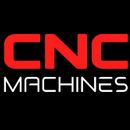Case Studies of Successful CNC Machining in Various Industries

Case Studies of Successful CNC Machining in Various Industries
CNC (Computer Numerical Control) machining is a transformative technology that has found applications across multiple industries. Its ability to produce highly accurate parts with intricate designs has made it a preferred choice for manufacturers looking to enhance productivity and quality. In this article, we will highlight case studies of successful CNC machining applications in various sectors, illustrating the versatility and impact of this technology. We’ll also cover the top 10 industries that utilize CNC machining, what they manufacture, and the relevant certifications and standards they adhere to.
Top 10 Industries Utilizing CNC Machining
Aerospace
Applications
Aerospace manufacturers use CNC machining to produce critical components such as engine parts, landing gear, and structural components.
Case Study: Boeing
Boeing uses CNC machining to manufacture high-precision parts for aircraft, ensuring safety and performance. The company employs advanced CNC technology to create complex geometries required in aerospace applications.
Certifications and Standards
- AS9100: Quality management systems for aerospace.
- FAA Regulations: Compliance with Federal Aviation Administration regulations for safety.
Automotive
Applications
In the automotive industry, CNC machining is used for producing engine blocks, transmission cases, and custom parts.
Case Study: Ford Motor Company
Ford utilizes CNC machines to manufacture engine components that require high precision and durability, enhancing vehicle performance and fuel efficiency.
Certifications and Standards
- ISO/TS 16949: Quality management standard for the automotive sector.
- SAE Standards: Compliance with the Society of Automotive Engineers standards for automotive parts.
Medical Devices
Applications
CNC machining is essential for manufacturing medical devices, including surgical instruments, implants, and diagnostic equipment.
Case Study: Medtronic
Medtronic employs CNC machining to produce precision components for heart pumps and pacemakers, ensuring high reliability and performance.
Certifications and Standards
- ISO 13485: Quality management systems for medical devices.
- FDA Regulations: Compliance with Food and Drug Administration regulations for medical products.
Electronics
Applications
CNC machining is used to create components such as enclosures, circuit boards, and connectors.
Case Study: Intel
Intel uses CNC technology to manufacture precision components for their semiconductor devices, ensuring the highest quality standards.
Certifications and Standards
- ISO 9001: General quality management standard.
- IPC Standards: Standards for the electronics industry, including circuit board manufacturing.
Energy
Applications
CNC machining plays a crucial role in producing parts for wind turbines, solar panels, and oil rigs.
Case Study: General Electric (GE)
GE utilizes CNC machining to manufacture turbine blades and components for gas and wind turbines, focusing on efficiency and sustainability.
Certifications and Standards
- ISO 50001: Energy management systems.
- ASME Standards: Compliance with American Society of Mechanical Engineers standards for pressure vessels and piping.
Construction
Applications
In the construction industry, CNC machining is used to create custom metal structures, HVAC components, and framing systems.
Case Study: Turner Construction
Turner Construction uses CNC technology to fabricate steel beams and frames, ensuring precision and structural integrity in their building projects.
Certifications and Standards
- AISC Certification: Standards for steel construction.
- LEED Certification: Leadership in Energy and Environmental Design for sustainable building practices.
Marine
Applications
CNC machining is essential for manufacturing components for boats and ships, including hulls, propellers, and engines.
Case Study: Viking Yachts
Viking Yachts employs CNC machining to create custom components for luxury yachts, ensuring high quality and performance.
Certifications and Standards
- ABS Certification: American Bureau of Shipping standards for marine equipment.
- ISO 9001: General quality management standard.
Furniture
Applications
CNC machining is used in the furniture industry to produce intricate designs, custom cabinetry, and ergonomic components.
Case Study: Herman Miller
Herman Miller uses CNC technology to manufacture high-quality office furniture, allowing for precision cutting and shaping of various materials.
Certifications and Standards
- FSC Certification: Forest Stewardship Council certification for sustainable wood products.
- ISO 9001: General quality management standard.
Defense
Applications
CNC machining is critical for producing components used in military equipment, weapons systems, and vehicles.
Case Study: Lockheed Martin
Lockheed Martin employs CNC machining to manufacture precision parts for fighter jets and defense systems, focusing on reliability and performance.
Certifications and Standards
- AS9100: Quality management systems for aerospace and defense.
- DFARS Compliance: Defense Federal Acquisition Regulation Supplement for defense contracting.
Aviation
Applications
CNC machining is used to produce parts for commercial and private aircraft, including fuselages, wings, and control surfaces.
Case Study: Airbus
Airbus utilizes CNC technology to manufacture precision components for their aircraft, ensuring safety and performance at high altitudes.
Certifications and Standards
- AS9100: Quality management systems for aerospace.
- EASA Regulations: European Union Aviation Safety Agency regulations for aviation products.
Conclusion
CNC machining has become an integral part of various industries, showcasing its versatility and impact through successful real-world applications. From aerospace to furniture manufacturing, the technology enables companies to produce high-quality components with precision and efficiency.
By adhering to industry-specific certifications and standards, manufacturers can ensure that their CNC machined products meet safety and quality requirements. As CNC technology continues to evolve, its role in driving innovation and improving production processes across these industries will only grow stronger. Embracing CNC machining not only enhances operational capabilities but also positions businesses for success in an increasingly competitive landscape.


